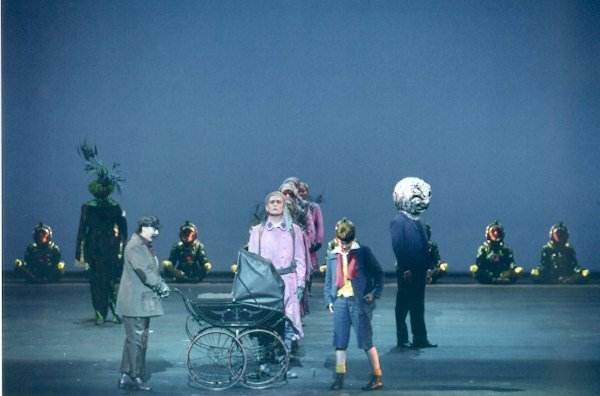Another successful revival for the Opéra de Paris at the Palais Garnier was the double bill of Alexander von Zemlinsky's Der Zwerg (The Dwarf) and Ravel's classic, L'Enfant et les sortilèges (The Child and the Magic). The Opéra's Music Director, James Conlon, in his first appearances this season at the helm, conducted these two jewels of the Twentieth Century operatic repertory and his usual high performance level was evident opening night.
Sharing a common theme of children who break toys, these two one act operas do not make a perfect musical marriage. The first is a sombre reflection on self-perception and unrequited love and the other is a delightful child's fantasy. But with the profound appreciation of these scores by Conlon and the support of a fine cast a convincing argument was made for this particular pairing. Both works received smart and engaging staging by the team of Richard Jones and Antony McDonald who were responsible for the stage design and direction, as well as the costumes. This production was first seen at the Palais Garnier in 1998 and revived again this season.
Conlon has recorded many works of Zemlinsky and here makes a strong case for the inclusion of his operas in the repertory of the world's opera houses. This work, framed in the late-Romantic tradition of Mahler and Richard Strauss, tells an Oscar Wilde story of a soulful dwarf, who is given by the Sultan to the Infanta of Spain as a birthday present. He has been raised to be unaware of his deformity and falls immediately in love with the young princess. The American tenor Robert Brubaker was particularly moving in his strong performance of the title character. Soprano Mary Mills, playing the spoiled, self-possessed Infanta, is amused by the gift and pretends to return his affection. The shock of the eventual rejection and revelation of his physical appearance breaks and kills the dwarf. The princess frowns slightly before returning to the dancing of her party.
Zemlinsky was yet another Twentieth Century giant whose contact with Alma Mahler proved fateful. For those who do not know the story, he was her music teacher in her youth and, of course, fell in love. She toyed with him for a bit before rejecting him and referred to him in her diaries as "the little dwarf." It was not surprising that he would have found Wilde's "Birthday of the Infanta" an inspiring subject.
Splendid performances by two fine sopranos, Désirée Rancatore as the Nightingale and the Princess and Gaële Le Roi as the Child brought energy and light to the Ravel opus. Playing the role of the mother was the impeccable mezzo, Felicity Palmer. Also making important contributions were Franck Leguerinel as the Clock and the Tomcat and Jean-Paul Fouchecourt as the Teapot, etc. Ravel's opera is a very different work from the Zemlinsky and Conlon had to shift his musical gears during the intermission. He seemed, however, to have no trouble illuminating all of the score's bountiful grace and charm.
Frank Cadenhead

 Return to:
Return to: